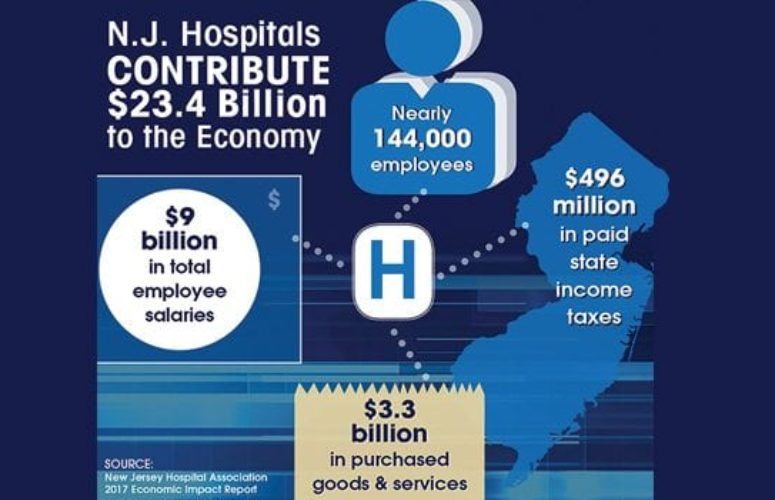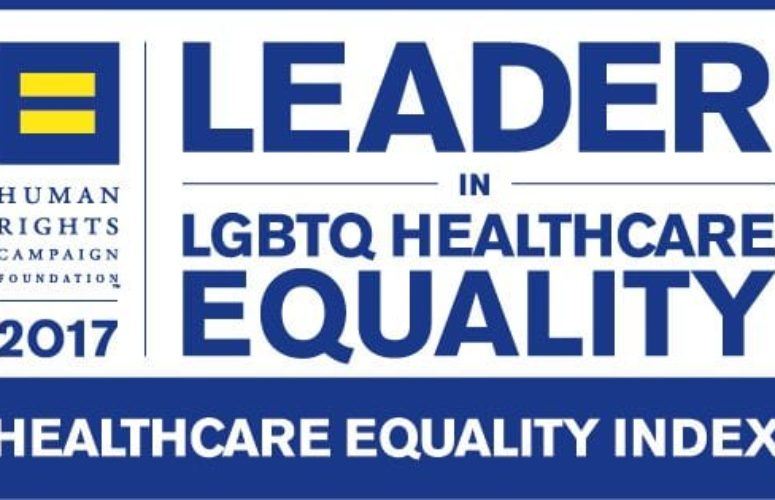
Healthcare: Bedrock of State and Local Economies
On Mar 28, 2018Jobs. Purchased goods and services. Salaries. State taxes. That’s all part of the $23.4 billion that New Jersey hospitals and health systems pump into the Garden State economy.
Add in the state’s 358 nursing homes and the total grows by an additional $5.6 billion in economic benefit.
“Healthcare matters in New Jersey – first and foremost, to take care of our families and our communities. But that essential work is also a bedrock of our economy,” says NJHA President and CEO Cathy Bennett. “Our members – hospitals, health systems, nursing homes and other providers – are some of the largest employers in the state, not only providing quality care to their communities and supporting community health and wellness, but contributing to the financial strength and producing jobs people are proud to do.”
The 2017 N.J. Hospitals Economic Impact Report, produced by the NJHA, is available at www.njha.com/econimpact2017.
The data shows that NJ’s hospitals and health systems saw employment increase to nearly 144,000 jobs in 2016 (the most recent data available), including more than 120,000 full-time jobs. This resulted in $9 billion in employee payroll spending and $496 million in estimated state income tax paid by employees, an increase from $8.7 billion and $483 million in 2015, respectively.
Specific data highlights from the 2017 report include:
- New Jersey hospitals and health systems purchased $3.3 billion in goods and services from other companies in 2016, an increase of $200 million over 2015. Key areas include contracted labor ($1.6 billion), pharmaceuticals ($1.4 billion), dietary, laundry and housekeeping ($129 million) and building supplies ($20 million).
- New Jersey hospitals and health systems contributed to the state’s safety net by providing care during 1.4 million hospital visits by uninsured persons.
- New Jersey hospitals and health systems paid nearly $159 million in state taxes, including a 0.53 percent assessment ($131.5 million), adjusted admissions assessment ($17.4 million) and newborn screening fees ($9.6 million). That total does not include local property taxes that for-profit hospitals pay and that not-for-profit hospitals pay on certain parts of their facilities.
In addition, NJHA’s annual Nursing Home Profile at www.njha.com/2017nursinghomes provides a comprehensive view of the economic contributions and quality results of the state’s nursing homes.
Financial information for the profile is based on 2015 Medicare cost reports, while quality data is collected from the Centers for Medicare and Medicaid Services’ Nursing Home Compare website for year-end 2016.
Perhaps most importantly for healthcare consumers, the data shows that the quality of care provided in New Jersey homes far surpasses the national average. Nearly 60 percent of New Jersey’s 358 skilled nursing facilities received a four- or five-star rating for quality from CMS, compared with 46.3 percent nationally.
Other key findings from the nursing home profile include:
- Nursing homes contributed $5.6 billion to the New Jersey economy in 2015 through expenditures, employee salaries and taxes.
- Facilities employ 55,395 full time-equivalent employees. Total employee payroll reached nearly $2.2 billion.
- More than half of New Jersey’s nursing home residents are financially assisted by Medicaid, which pays providers 17 percent less than cost, resulting in a $350 million shortfall between cost of care and reimbursement.
“The economic footprint of our healthcare community ripples throughout state and local economies and provides a strong foundation for continuing to provide excellent care to the people of our state,” said Sean Hopkins, NJHA’s senior vice president of federal relations and health economics.
Related Articles:






